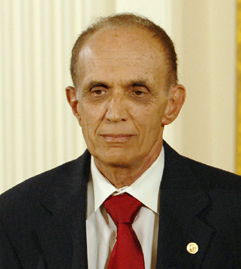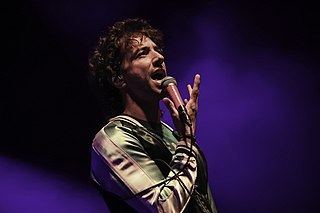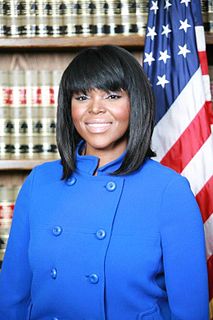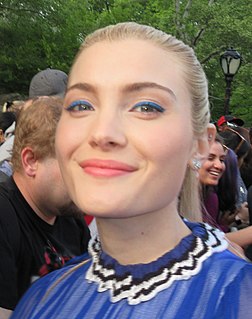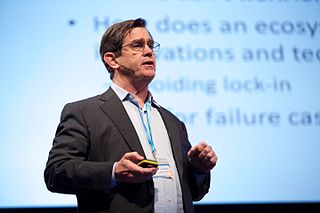A Quote by Geoffrey Hinton
The paradigm for intelligence was logical reasoning, and the idea of what an internal representation would look like was it would be some kind of symbolic structure. That has completely changed with these big neural nets.
Related Quotes
The first attempts to consider the behavior of so-called "random neural nets" in a systematic way have led to a series of problems concerned with relations between the "structure" and the "function" of such nets. The "structure" of a random net is not a clearly defined topological manifold such as could be used to describe a circuit with explicitly given connections. In a random neural net, one does not speak of "this" neuron synapsing on "that" one, but rather in terms of tendencies and probabilities associated with points or regions in the net.
The idea is that to grasp an idea like equality or justice, you can't look at the equal and just or unjust things in the world around you, you have to somehow ascend to or maybe remember some kind of idea of equality and justice and this would be a Platonic form, and it would be different from the things that partake in the form.
I had a stormy graduate career, where every week we would have a shouting match. I kept doing deals where I would say, 'Okay, let me do neural nets for another six months, and I will prove to you they work.' At the end of the six months, I would say, 'Yeah, but I am almost there. Give me another six months.'
I like the idea that within the structure of the song, some kind of built-in improvisation keeps them fragile and in their moment, so that I'm not projecting so much, so that my perception of the song doesn't interfere with what its real body is. Sometimes it's like telling a story that I heard in passing, and I don't want it to become completely mine.
My idea was you can't dress for the stage, you have to dress all the time like you're onstage. And so I would just always wear suits or some form of it. I wanted people to know I played music. That was kind of how you would find other people: you would just walk around looking a certain way and end up meeting someone who liked the way you look.
Satan frequently steals the will of God from us due to reasoning. The Lord may direct us to do a certain thing, but if it does not make sense - if it is not logical - we may be tempted to disregard it. What God leads a person to do does not always make logical sense to his mind. His spirit may affirm it and His mind reject it, especially if it would be out of the ordinary or unpleasant or if it would require personal sacrifice or discomfort.
Our economy has become completely different, on the whole. The size has changed. The economy has almost doubled in size. And the quality is changing, not as fast as we would like it to, but the structure is changing. Our Armed Forces are completely different today from what they were, say 15 years ago or so. All of this, including our great history, great culture, all of this, not just what we see today, is what makes the vast majority of Russia's citizens feel proud for their country.


